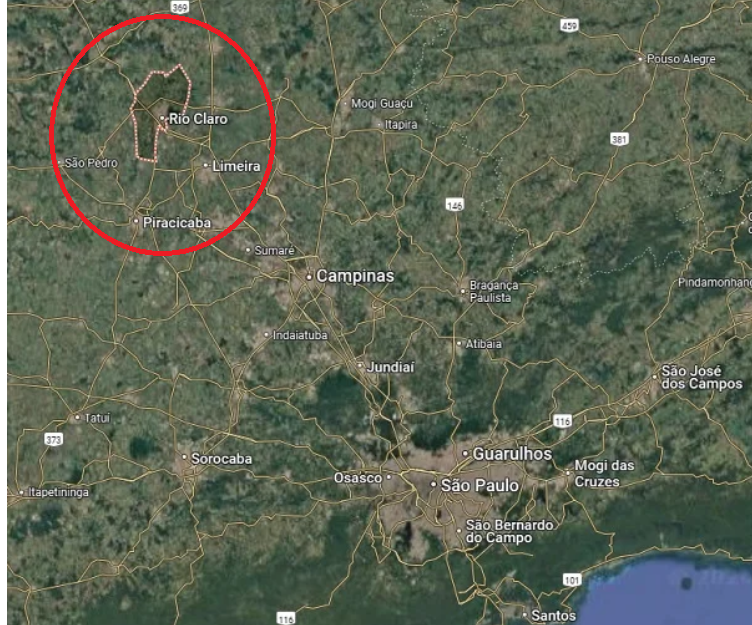The criminal group known as the “Bando do Magrelo,” originating in Rio Claro, São Paulo, has become embroiled in a violent conflict with the First Capital Command (PCC) as both factions vie for control of lucrative drug trafficking operations across strategic regions in the state. This ongoing power struggle underscores the growing influence and ambitions of regional gangs challenging Brazil’s largest criminal organization.
This Content Is Only For Subscribers
To unlock this content, subscribe to INTERLIRA Reports.
The Group Has Already Expanded
An investigation by the Special Group for Combating Organized Crime (Gaeco), a division of the São Paulo Public Prosecutor’s Office (MPSP), reveals that the Rio Claro-based gang has expanded its operations to at least seven additional cities in the interior of São Paulo. These cities include Jundiaí, Sumaré, São Carlos, Pirassununga, Americana, Leme, and Louveira, indicating a deliberate and systematic effort to broaden their territorial influence.
Similar Ambitions
Evidence suggests that the PCC rivals have similar plans to solidify their dominance in São Paulo’s drug trade. The state is a key strategic hub with vital routes for drug distribution, making it a battleground for criminal enterprises seeking control over these profitable networks. The “Bando do Magrelo” and PCC rely heavily on narcotics trafficking as their primary source of revenue, further intensifying the stakes of their rivalry.
Key Leadership
The leader of the “Bando do Magrelo”, Anderson Ricardo de Menezes, known as “Magrelo,” has positioned himself as a major challenger to the PCC, even referring to himself as “the new Marcola” (a reference to the infamous PCC leader). Despite his incarceration since May 2023, the group remains active and continues to perpetrate violence in the region. Magrelo has been charged by Gaeco with money laundering and is linked to at least 30 murders in the Rio Claro area. His criminal enterprise appears to have maintained its operational structure, signaling a high degree of organization and resilience.
Trail of Blood
The violent clash between the two criminal factions has left a trail of bloodshed in São Paulo’s interior. In Rio Claro alone, 27 homicides have been recorded this year, marking it as one of the most violent cities in the region. With a population of approximately 200,000, Rio Claro has nearly 30 homicide victims, equating to a rate of 13.5 violent deaths per 100,000 inhabitants. This is more than double the statewide homicide rate of 5.98, as reported by the São Paulo Public Security Secretariat (SSP). The statistics underscore the severity of the conflict and its impact on public safety, highlighting the urgent need for targeted interventions to address organized crime in the state.
Analysis:
The emergence of the “Bando do Magrelo” as a rival to the First Capital Command (PCC) in São Paulo marks a significant shift in the state’s organized crime landscape. This new faction challenges the PCC’s longstanding dominance, creating instability and escalating violence, particularly in strategic areas like Rio Claro, where territorial disputes over drug trafficking have led to alarming homicide rates. Despite its leader being incarcerated, the “Bando do Magrelo” has shown the ability to expand its influence, affecting other cities in São Paulo’s interior.
The fragmentation of organized crime complicates law enforcement efforts, which now face the challenge of combating multiple criminal organizations. This situation demands greater investment in intelligence operations, enhanced coordination between state and federal police forces, and policies aimed at reducing corruption in vulnerable areas. The rise in conflicts also undermines public confidence in security and places additional strain on local authorities.
On a national level, this rivalry has the potential to destabilize other regions and disrupt international drug trafficking routes, given the PCC’s extensive cross-border connections. Addressing this threat requires integrated strategies that combine targeted enforcement, strengthened public policies, and measures to cut off the financial sources of these criminal organizations.
Sources: Metrópoles [1], [2]; Jornal Opção.




